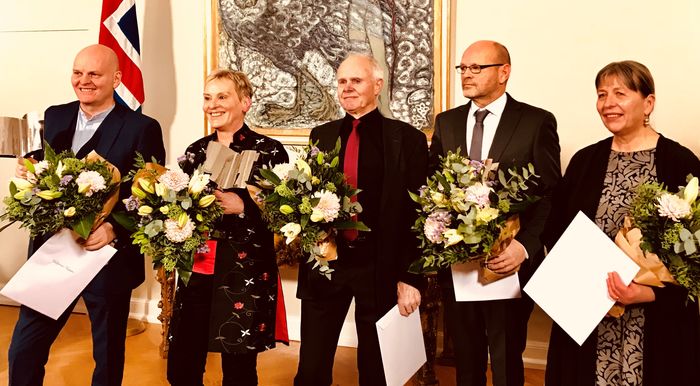The Icelandic Literary Prize 2018 presented by President Guðni Th. Jóhannesson
Hallgrímur Helgason, Sigrún Eldjárn, Hörður Kristinsson, Þóra Ellen Þórhallsdóttir & Jón Baldur Hlíðberg received the prizes in three categories; fiction, non fiction and children and young adult´s fiction
The President of Iceland, Mr. Guðni Th. Jóhannesson, presented the Icelandic Literary Prize for 2018 at Bessastaðir, the presidential residence, on the 29th of January 2019. This is the 30th time that the prize is awarded and the ceremony was broadcast live on television. Hallgrímur Helgason was awarded the prize for fiction for his novel Sextíu kíló af sólskini [Sixty Kilos of Sunshine], Sigrún Eldjárn received the prize for children's and young adult fiction for her novel Silfurlykillinn [The Silver Key], and the prize for non-fiction went to the authors of Flóra Íslands [Flora of Iceland], Hörður Krisinsson, Þóra Ellen Þórhalssdóttir, and Jón Baldur Hlíðberg.
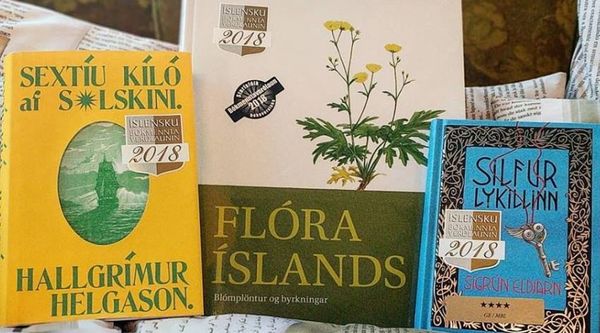
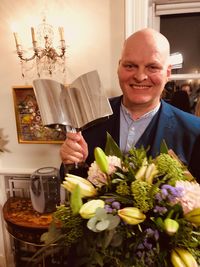 How Iceland Went from Nothing to Something
How Iceland Went from Nothing to Something
Hallgrímur Helgason's novel, Sextíu kíló af sólskini, is about a tumultuous time in Iceland at the turn of the 20th century, when modernity comes sailing in with great commotion into a small fishing village in Iceland. In the story, readers come across crofters who live in poverty but experience great change and wealth with the arrival of herring and the Norwegians.
In the TV literary programme Kiljan, Hallgrímur said that the novel takes place at the intersection of history when great changes occur in a community where everything had been set in stone. “You couldn't even go to live in another province if you wanted to without first obtaining permission from the priest or the district administrative officer. But then the Norwegians arrived and disrupted all of this.” Our guide on this journey is young Gestur who gets into all kinds of situations. “I wanted to tell his story, but also a communal story; of how Iceland went from the darkness into the light, from the past into modernity. As he says in the book: “…from nothing to something.”
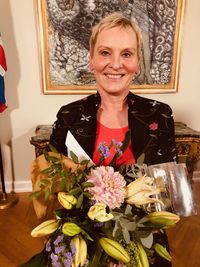 A Thought-Provoking Future Fantasy
A Thought-Provoking Future Fantasy
Silfurlykillinn by Sigrún Eldjárn is a story that takes place in a future where humans have laid the Earth to waste. This story is about the resourceful siblings, Sumarliði and Sóldís, who set out on a journey with a mysterious girl.
Sigrún Eldjárn talked about Silfurlykillinn among other things to Óðinn Jónsson on the morning radio programme Morgunvaktin. “Silfurlykilinn takes place in a time when all the technology we rely on today no longer functions,” she said. “Humans have destroyed the world, as we have started to do, bringing about climate change and other harm.” Silfurlykillinn is based on an idea that had been with her for a long time and that has now become one of the most pressing issues of our time.
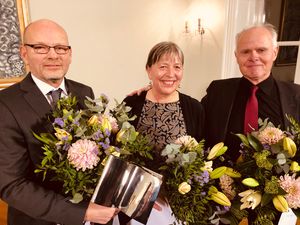 Nature can be Spectacular without Elephants and Giraffes
Nature can be Spectacular without Elephants and Giraffes
Flóra Íslands – blómplöntur og byrkningar [Flora of Iceland] by Hörður Kristinsson, Jón Baldur Hlíðberg, and Þóra Ellen Þórhallsdóttir is the single most comprehensive written work that has been published on Icelandic flora. Each and every domestic species in the flora is in the book in addition to newer colonists. “There is much more detailed information than before on plants, ecology, reproduction, both old and modern uses, chemical production, and medicinal use.” Þóra Ellen Þórhallsdóttir and Jón Baldur talked to Egill Helgason in his television programme Kiljan.
Jón Baldur's illustrations underline how delicate northerly plant types are. “It's something that I think Icelanders need to get used to, to sharpen the focus on the small things,” Jón Baldur says. “I remember this from when I was a child; it's possible to experience the dramatic and, for instance, there is an abundance of exciting lifeforms on the beach in January to be seen. If you just focus. We don't need elephants and giraffes to have spectacular nature. It is right there at our doorstep all year long.”
The Icelandic Literature Prize
The Association of Icelandic Publishers hosts this prize, handed out by the President of Iceland in the beginning of each year. There are three categories: fiction, non-fiction and children's books and five books nominated in each category. The Icelandic Literature Prize was founded in 1989. The category for children's books was added in 2013.
